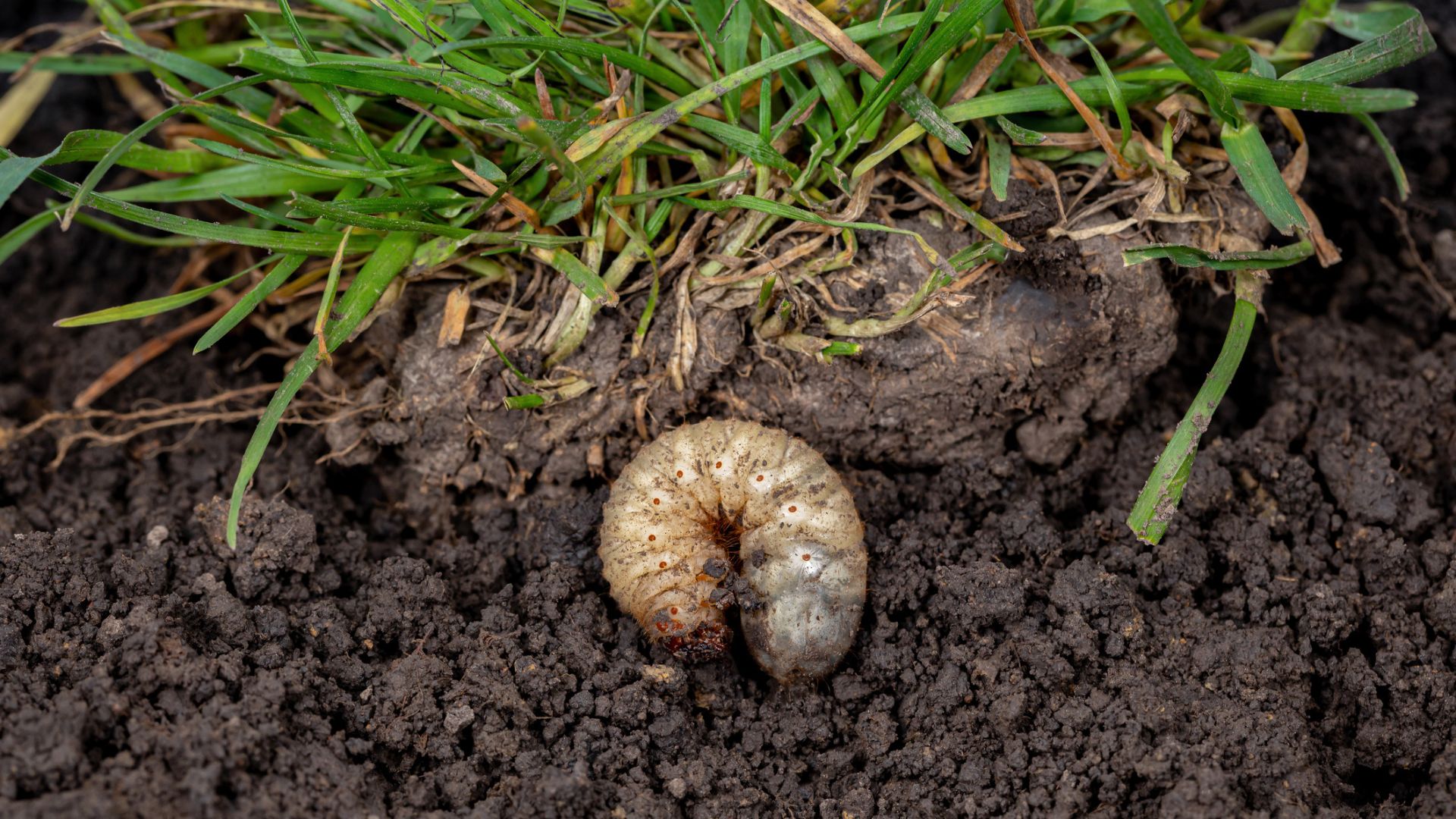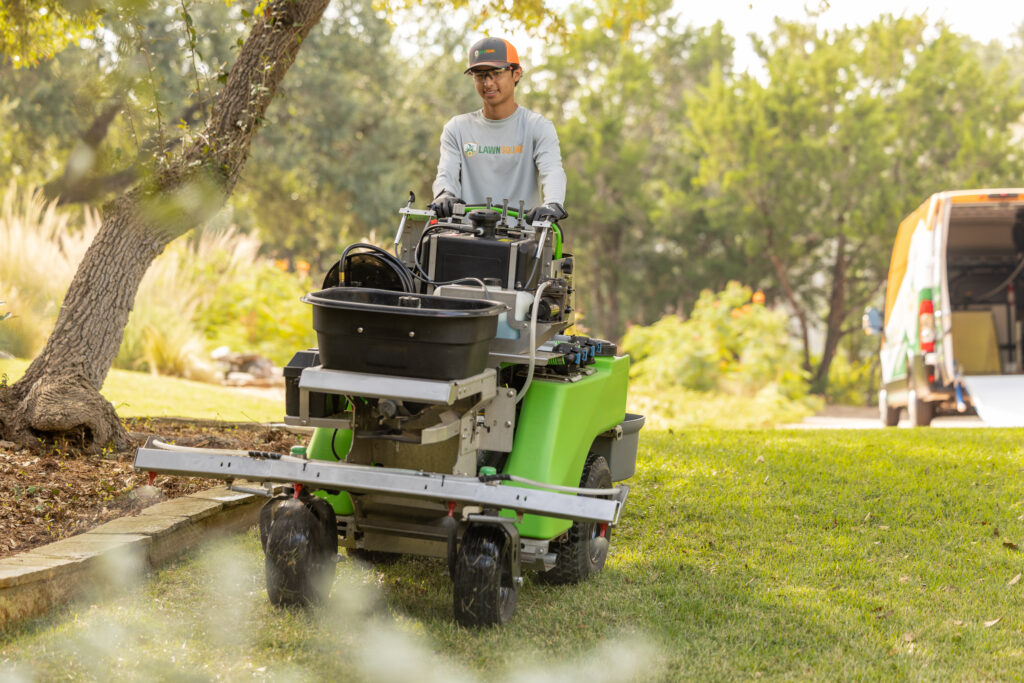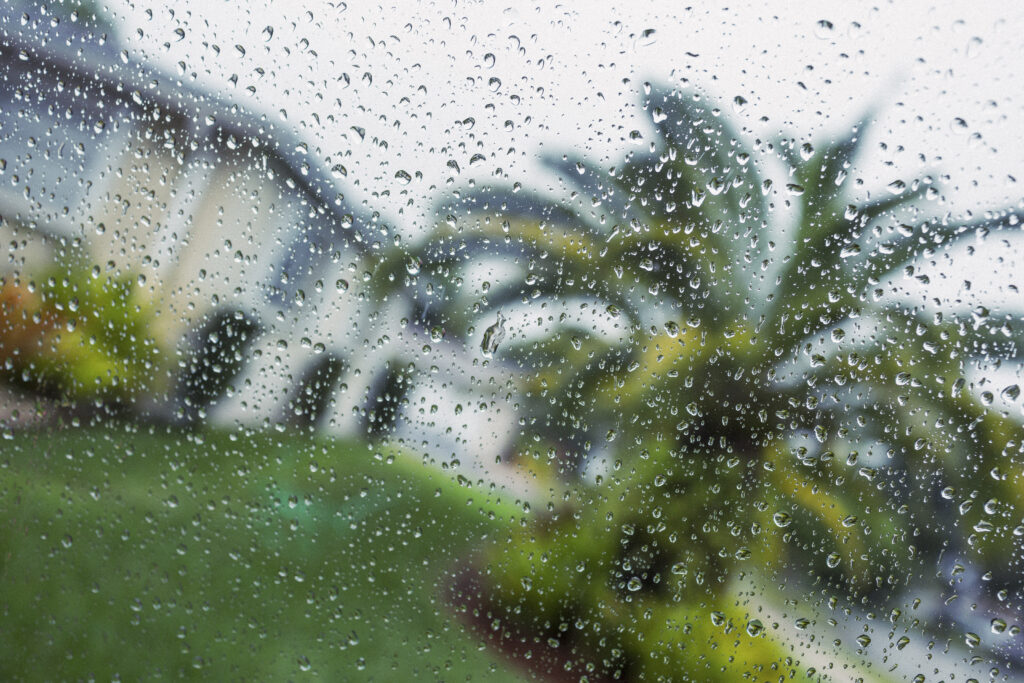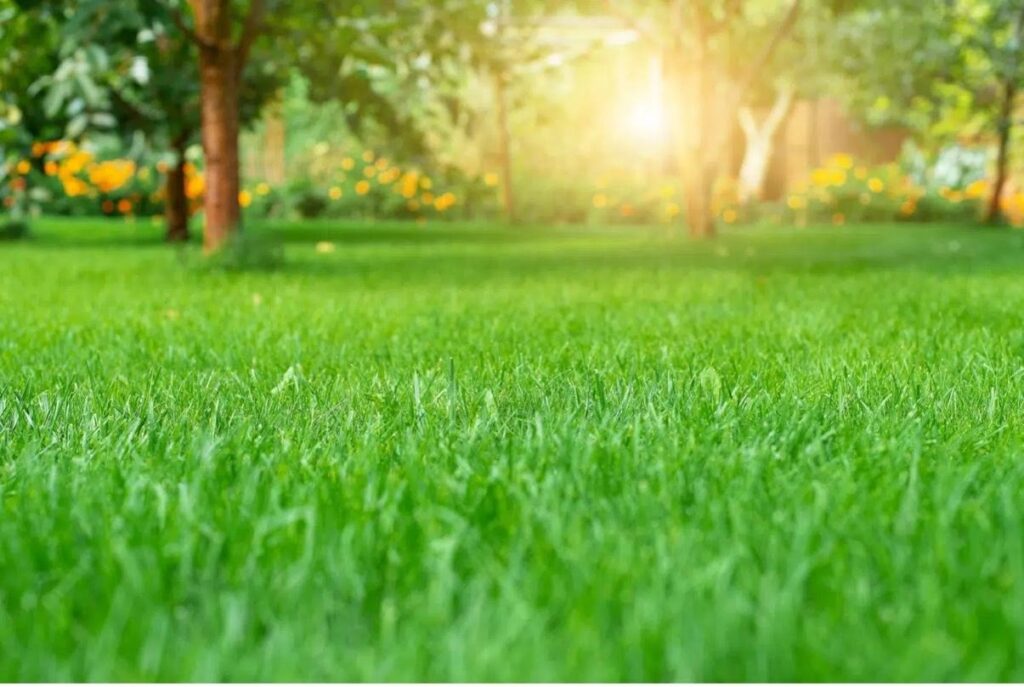Grubs? This early? We realize that spring has recently “sprung” here in Southeastern Massachusetts, but looking beyond the green grass and abundant spring blooms in your landscape, there could be something lurking under your turf. In our local area, grubs overwinter as larvae and will resume feeding in the spring. That means to avoid grub damage to your lawn, and more, now is the time to consider proactive treatment. Lawn Squad of Southeastern Massachusetts is here to give you the full story on grubs, including what they are, what they can do, and how to prevent grub damage.
What Do Grubs Do?
Grubs can cause significant damage to your SE Mass lawn, including but not limited to: irregular dead patches, lawn wilting, browning, and more. Grubs cause damage because of feeding on the roots of your grass. This can cause injury to it from the roots causing it to weaken, turn yellow or brown, and eventually die. Grub damage can also loosen your turf making it easy to pull up, revealing the grubs underneath. If grubs are left untreated, they can cause significant lawn damage that may incur substantial repair.
As a note, certain animals are attracted to grubs, such as skunks, racoons, and birds, as a food source. These animals can cause further damage to an already compromised turf as they dig to retrieve the grubs.
Where Do Grubs Come From?
Grubs are the larvae of beetles that live within the soil. This includes beetles like Japanese beetles, June bugs, and European chafers. These beetles lay their eggs in the soil, and the eggs hatch into grubs. Grubs feed on the roots of grass and other plants.
The Life Cycle Of A Grub – From Egg To Adult Beetle
- Female beetles lay eggs in the soil a few inches deep. These eggs can overwinter in your soil to hatch in the spring as well.
- The egg hatches into the larval stage called a “grub”.
- The grub feeds on the root system of the turf for nutrients to grow into the pupal stage.
- After feeding for a period of time, grubs will then transform into a pupa, and eventually emerge as adult beetles, only to restart the cycle all over again.
Is It True Grubs Are Actually Infant Japanese Beetles?
Yes, as stated above, the Japanese beetle is one of the mentioned larvae that are considered “grubs”. Once the grubs hatch into adult Japanese beetles, they can wreak havoc on many plants, trees, and shrubs within your landscape. This paired with the damage incurred during their larval stage, is more than enough reason to control and prevent grubs within your Southeastern MA landscape.
Where Can I Schedule Grub Control Services?
The answer to who do I call to schedule grub control services, is simple. Lawn Squad of Southeastern Massachusetts is your local grub control expert! Our Grub Control services, provided as an option in our VitaminLawn Program, are specifically designed to tackle these pests head-on, helping ensure they don’t damage the health and appearance of your turf. Trust our professionals to provide the right solutions to keep your lawn thriving.
Our experienced Lawn Squad team can help you identify grubs in your lawn too! This helps you get to the “root” of the problem before they have had a chance to cause damage. Prevention is your biggest defense against grubs, and at Lawn Squad, we use proven techniques and products to effectively control grubs in your lawn.
Contact us today to learn more at (774) 295-1455.ur lawn problems! You can also call us at (774) 840-5329.







